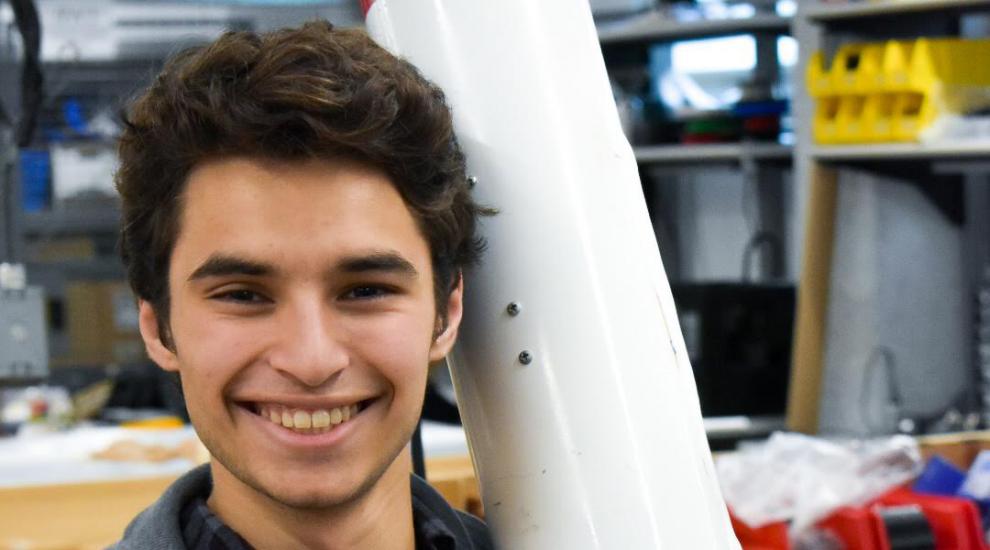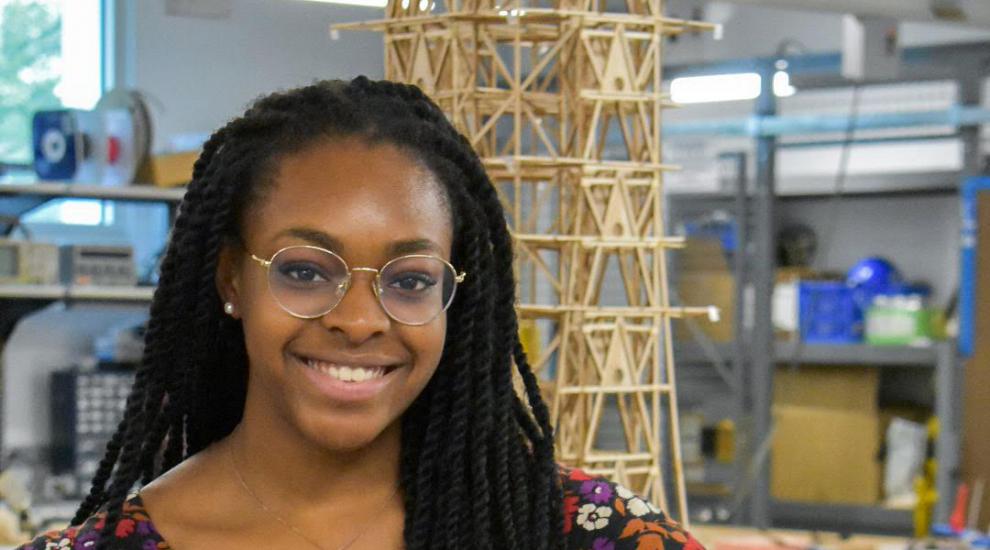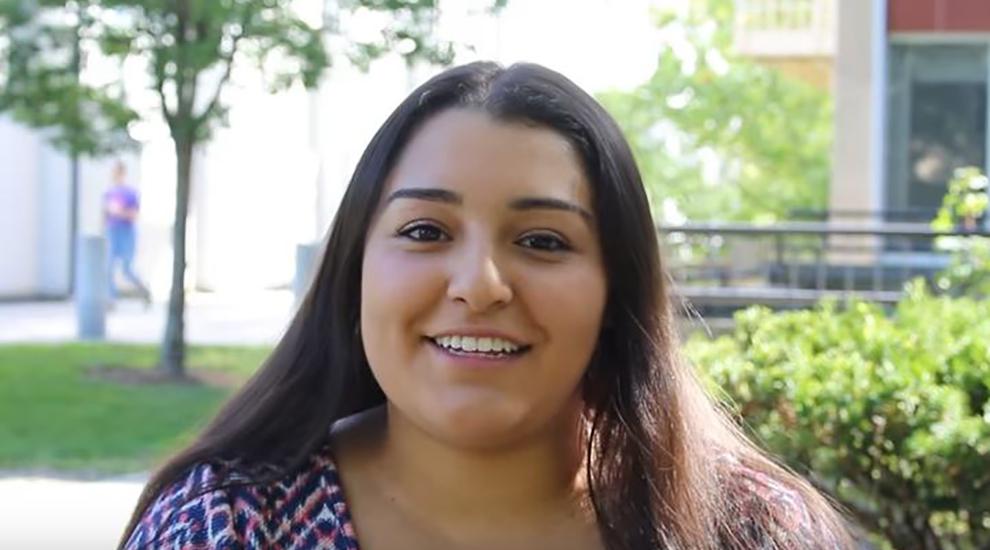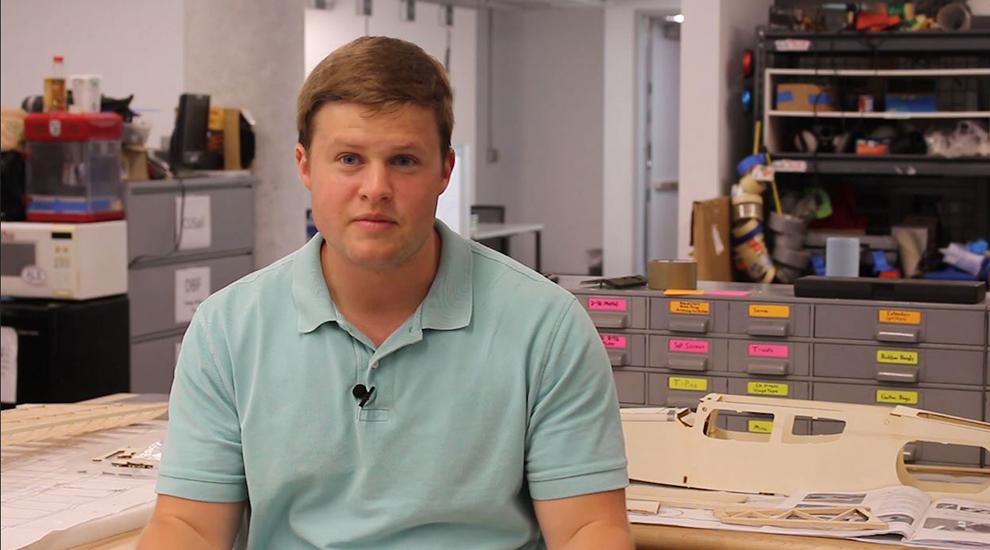- Long Essay Responses (200 word limit)
- Question 1: Fundamentally, engineering is the application of math, science, and technology to solve complex problems. Why do you want to study engineering?
- Question 2: Why do you think you would love to study at Cornell Engineering?
- Question 1: What brings you joy?
- Question 2: What do you believe you will contribute to the Cornell Engineering community beyond what you've already detailed in your application? What unique voice will you bring?
- Question 3: What is one activity, club, team, organization, work/volunteer experience or family responsibility that is especially meaningful to you? Please briefly tell us about its significance for you.
- Question 4: What is one award you have received or achievement you have attained that has meant the most to you? Please briefly describe its importance to you.
Standardized Testing Requirements
For students applying to Cornell Engineering for fall 2025 enrollment, SAT/ACT test scores are not required but are recommended. For enrollment in fall 2026 and beyond, applicants to all Cornell undergraduate colleges and schools will be required to submit standardized test scores.
English Language Proficiency Testing Requirements
Our international applicants follow the same application process as our first-year applicants and transfer applicants. All Cornell students must have a strong command of the English language to be successful in their engagement in their university studies. If English is not your native language or the primary language of instruction throughout your secondary school career, you may be asked to submit results from an English language proficiency examination.
Have more questions?
See the Frequently Asked Questions (FAQs) below.
See also:
- Virtual Visit: Cornell Engineering
- Financial Aid
- International Applicants
- Application Checklist
- Application Timelines

I am a Cornell Engineer
There is nothing more powerful than getting a group of people to tackle a problem. "Two heads are better than one" is a vast understatement of the power of collaborating in a group.
~Nathan (Ashland, MA), mechanical engineering

I am a Cornell Engineer
As more diverse individuals enter engineering fields, the way we make decisions about infrastructures and systems will change. I hope to inspire the next generation of black, female computer scientists.
~Destiny (East Orange, NJ), computer science

I am a Cornell Engineer
I break the rules by challenging traditional solutions, thinking critically, and charting my own unique course. My generation is ready to face challenges and solve problems in innovative ways!
~Joshua (Oakton, VA), operations research and engineering

Sofia '20
Sofia (Aurora, CO) is a computer science major, a Meinig Scholar, and an intern in the B.A.B.Y lab. Hear how she breaks the rules by applying theories to immediate problems.

I am a Cornell Engineer
I will break the rules to create what doesn't exist. Always ask what "you can do", not what people what you to do.
~Tse Tse (Manassas, VA), electrical and computer engineering

Jamey '18
Jamey (Bethesda, MD) is a mechanical engineering major with a passion for aerospace. Hear how his defining moment at Cornell helped shape his time as an undergraduate student and his plans for the future as an M.Eng. student here at Cornell.
Cornell Engineering Admissions Statistics*
Class of 2025
Applications Submitted: 17,284
Class Size: 890
Early Decision Enrollment: 56.2%
First-Generation College Students: 20.8%*Data taken from PeopleSoft Frozen File on July 19, 2021

My time at Cornell has been essential to my growth as an academic and a person. In classes, I've both learned theory and applied it through the numerous projects I've completed in my computer science classes. These experiences gave me the qualifications to work at amazing research institutions such as the National Institutes of Health and Cold Spring Harbor Laboratory. In terms of personal growth, I've become more aware and understanding of opinions and experiences different than my own. Cornell is home to people from many walks of life, and hearing various life stories always inspires me to adjust the way I act to become a little bit of a better person everyday.
Frequently Asked Questions
Application Process
Early Decision (ED)
High School Coursework and Credit
Application Process
Can I apply to more than one college at Cornell University?
- Cornell University only allows applicants to apply to one of the seven undergraduate colleges and schools.
Do I have to apply to a particular major? If so, what if I change my mind later?
- No, you do not apply to a particular major; you apply to the college. When you apply to the College of Engineering, you can indicate an intended major if you wish. You do not officially select your major until the second semester of your sophomore year. It is not uncommon for students to change their minds about what area of engineering they'd like to specialize in.
How important are my SAT/ACT scores for my application?
- For students applying to Cornell Engineering for fall 2025 enrollment, SAT/ACT test scores are not required but are recommended. For enrollment in fall 2026 and beyond, applicants to all Cornell undergraduate colleges and schools will be required to submit standardized test scores.
How can I check on the status of my application?
- When we receive your application and application fee (or fee waiver request), we will email you with the information you need to establish an online application status account. This may take up to two weeks at peak processing times. Receiving your Applicant ID and PIN via email is your confirmation that we have received your application. Using this secure site, you will be able to track your application materials and update your email address as necessary.
If I need to mail application materials to Cornell, where do I send them?
- Students are required to submit their Common Application electronically. We strongly encourage you to upload supplemental materials using your application status portal. If your supplemental material cannot be uploaded electronically, items can be mailed to the below address if necessary.
- Please include full name, application ID#, and birthdate on all correspondence. Cornell University Application Processing Center
410 Thurston Rd
Ithaca, NY 14850
If I already have an undergraduate degree, may I apply as a first-year student to obtain a second bachelor's degree?
- No, Cornell Engineering does not enroll students for a second bachelor's degree. Individuals who already hold an undergraduate degree need to apply for a graduate degree program.
Are admissions interviews required?
- No, interviews are not required nor are they offered for Engineering. However, an applicant may be offered an opportunity to meet with a Cornell alum once his/her application has been submitted. Cornell Alumni Admissions Ambassador Network (CAAAN) members may contact prospective students in their local area to see if they would like to meet. The meetings are purely optional, but provide candidates with a chance to learn more about Cornell from an alum's perspective. If you are unable to meet with a CAAAN member or there is no one available in your area it will not adversely impact your chance of admission.
How do you evaluate applicants who are home-schooled?
- In order to understand and appreciate the depth and variety of the homeschool experience, the admissions selection committee requires the following information for all four years prior to entering college:
- English: list of books (including all textbooks and other anthologies) you have read each year; how many papers and how long (indicate which are creative and which are expository writing); any research papers (list titles and length of each).
- Social Studies: list of textbooks and books you have read each year; how many papers (topics listed) and how long; independent research projects (titles and lengths).
- Foreign Language: list of textbooks you have read each year; list of projects and/or papers; descriptions and dates of visits to other countries.
- Science: textbooks you have used each year (description of topics covered if you did not use a textbook or only used part of the book); list of experiments and/or field trips; any projects or research done (titles and time spent).
- Mathematics: textbooks (covering which topics) you have used each year; any independent projects (titles and time spent).
- We ask that applicants provide an official high school transcript if available, as well as transcripts from any college courses you may have taken. You should also send information on independent projects, laboratory experiences, research projects, etc. In addition, you may submit scores from any standardized examinations (state, SATs, ACTs, APs).
Early Decision (ED)
What happens if I'm not admitted during Early Decision?
- Students who are not admitted during the Early Decision period may be deferred to Regular Decision or denied admission altogether. Deferrals to Regular Decision are only granted to a small number of students who are in serious contention for a spot in the class. Unfortunately, if a student is denied in Early Decision, he/she cannot re-apply to any of the seven undergraduate colleges/schools at Cornell University.
Can I apply Early Decision if I am applying for financial aid? What happens if I'm admitted and my family can't afford to pay for my Cornell education?
- You can still apply Early Decision if you are applying for financial aid. Make sure to follow the financial aid application deadlines and submit all the required forms as outlined on the Cornell University Financial Aid website. When you receive your financial aid package, we expect you to work with the Financial Aid Office to make any necessary adjustments to your package. If both sides have done as much as possible and your family is still unable to afford Cornell, we will release you from your Early Decision agreement.
High School Coursework and Credit
What is the minimum high school GPA required to be admitted to the College of Engineering as a freshman?
- Admitted students are usually those who have excelled in their studies, particularly in math and sciences, and who have grades that are generally in the A range. Most of the students admitted into the College fall within the top 10% of their high school graduating class. When considering a student's GPA, we look at the rigor of the high school curriculum, whether the GPA is weighted or un-weighted, and whether the student has taken challenging courses if they are offered at their school.
If calculus is not offered at my high school, will this hurt my chances of being admitted?
- Calculus is extremely important given the engineering common curriculum, which includes several calculus courses during the first two years at Cornell. Cornell Engineering requires one year (or one high school unit) of calculus as a component of the engineering application because our engineering curriculum is fundamentally driven by facility in calculus. Any applicant choosing to apply to Cornell Engineering without meeting this requirement would be placed at a substantial disadvantage relative to the engineering applicant pool. This is important to factor in during the college search process. Rare exceptions can be made, but may require the admitted student to come to Cornell during the summer before his/her freshman fall semester to take a college-level calculus class. If it is possible for you to gain calculus experience during your senior year at a local or community college, it will be in your best interest to do so.
Is AP level coursework in the fields of math and science needed in order to apply?
- AP level coursework is not required as long as candidates receive one full unit of the required subjects (calculus, chemistry and physics) during their high school years. AP level courses are rigorous and having access to this level of coursework can strengthen candidates' opportunities for admission and potential to succeed academically in the engineering curriculum.
Which is more important, AP Physics 1 & 2 or AP Physics C?
- No appreciable distinction is made between AP Physics 1 & 2 and AP Physics C other than AP credit is only awarded for a score of 5 on the AP Physics C test. More important is that students have exposure to at least one high level physics class in high school, and students are challenging themselves in the curricular environment that is available to them. Because physics is critically important to many fields of engineering, we prefer that students' most recent exposure to physics occur in their junior and/or senior year.
Does the College of Engineering award credit for AP, IB, GCE A-levels and/or college courses taken during high school?
- The College of Engineering will award credit for certain advanced classes based on exam results. In addition, college courses taken during high school that meet certain criteria may be reviewed for transfer credit. Please note that transfer credit is not guaranteed, and requests are evaluated on a case-by-case basis to ensure that all department and College policies have been met for credit to be awarded. For more information, please refer to the College's websites on AP and Transfer Credit and the Transfer Credit Application Process. Matriculating students may also earn credit by taking a Cornell Advanced Standing Exam (CASE) during the fall orientation period. Cornell University's Registrar is the official determinant of all credit transfer policies.
See also:
- Virtual Visit: Cornell Engineering
- Financial Aid
- International Applicants
- Application Checklist
- Application Timelines